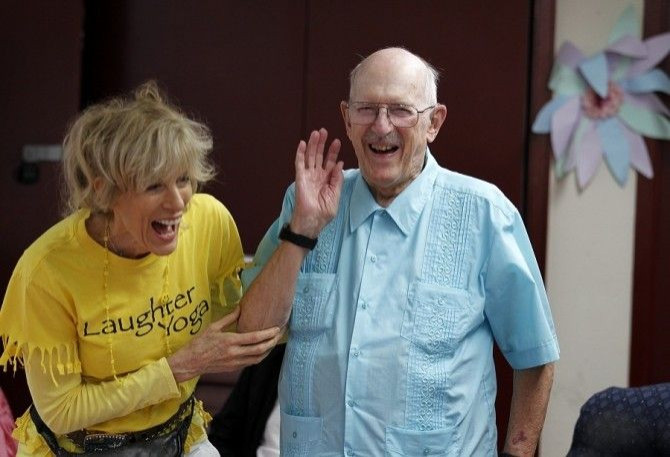What's Behind the Phenomenon of Aging and Happiness?

Older people are generally happier, and some researchers believe it is because they tend to focus and remember more positive events while leaving behind negative ones, according to a study.
These cognitive processes help older people control their emotions and let them see life more enthusiastically and in a sunnier light, researchers said.
There is a lot of good theory about this age difference in happiness, said psychologist Derek Isaacowitz of Northeastern University, but much of the research does not provide direct evidence of the relationships between the phenomena and actual happiness.
Isaacowitz and Psychology Department Chair Fredda Blachard-Fields of the Georgia Institute of Technology said there needs to be more and better research on why the elderly are happier in a new article in the Perspectives on Psychological Science journal published by the Association for Psychological Science.
Previous research reported that when older people are shown pictures of faces or situations, they tended to focus on and remember the happier ones more and the negative ones less.
Other studies have shown that as people age, they are more likely they were to seek out situations to lift their moods, such as cutting off friends or acquaintances who might bring them down.
Researchers have also found that older adults are more likely to let go of loss and disappointment over unachieved goals to achieve greater emotional wellbeing.
However researchers said that there is still no evidence that can demonstrate direct links between these cognitive strategies that connects to the phenomena of aging and happiness. Researchers said that the results from previous studies are unclear and not straightforward.
When we try to use those cognitive processes to predict change of mood, they don't always do so, Isaacowitz explained. Sometimes looking at positive pictures doesn't make people feel better.
The authors said that a closer look at the studies reveal several contradictions.
Younger people actually make themselves feel better by magnifying the negative in others' characteristics or circumstances.
Furthermore while some psychologists reported a relationship between higher scores on certain cognitive tests and the ability of older people to control their emotions, others have hypothesized that happiness in later life is caused by cognitive losses that forces older people to concentrate on simpler and happier thoughts.
It won't be as easy to say old people are happier. But even if they are happier on average, we still want to know in what situations does this particular strategy make this particular person with these particular qualities or strengths feel good, Isaacowitz said.
Copyright Medical Daily News Service. All rights reserved.





















